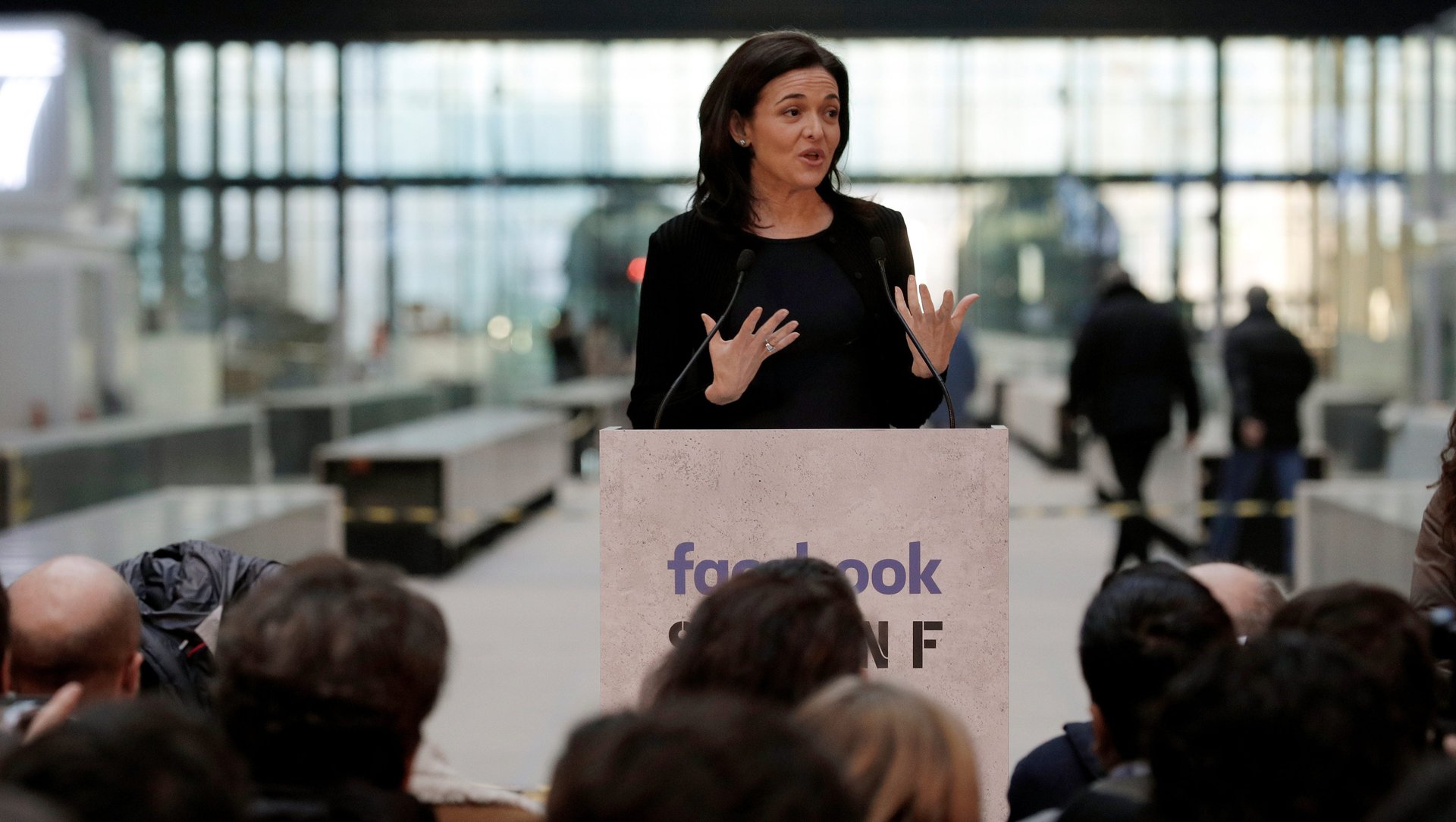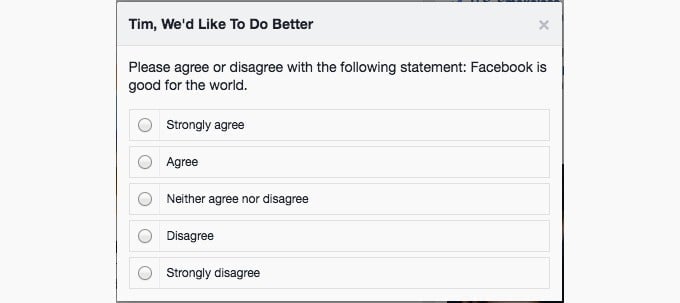Facebook is flat out asking users if they think Facebook is good for the world
Mark Zuckerberg has long characterized Facebook as a force for good. But last year’s uproar over ”fake news” and “filter bubbles” seems to have left the company a lot less self-assured.


Mark Zuckerberg has long characterized Facebook as a force for good. But last year’s uproar over ”fake news” and “filter bubbles” seems to have left the company a lot less self-assured.
The latest indication that Facebook may be experiencing an existential crisis comes from none other than Facebook itself. The company has recently been asking its users—quite literally—whether they think Facebook “is good for the world.”

Two Quartz employees who received the survey in recent weeks said it appeared prominently in the center of their Facebook home screen, much like a pop-up ad. One described it as “not subtle.” Facebook didn’t immediately respond to a request for comment. (Update: Facebook said in an email that the survey is a “standard” one it uses to “get feedback on our products” that was first created in 2015.)
Facebook has been widely accused of spreading hoaxes and misinformation that helped get US president Donald Trump elected, and of worsening political polarization by immersing users in content that they already agreed with. The public outcry was not lost on Facebook’s most senior executives. Zuckerberg, who initially said it was “pretty crazy” to think fake news on Facebook influenced the US election, later tempered his response, and outlined steps the company would take to eliminate the worst misinformation from its site. Facebook also has hired a new head of news partnerships, and announced the Facebook Journalism Project to strengthen ties with the news industry.
On Wall Street, all remains well. Facebook’s fourth-quarter results proved remarkably impervious to its public controversies, and a series of metrics reporting errors it disclosed. The stock, which dipped in November and December, has climbed back toward its 2016 highs. But what investors think doesn’t necessarily reflect how consumers feel. It seems Facebook wants reaffirmation on that front, too.